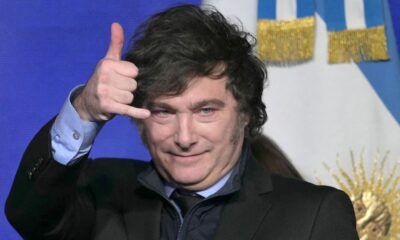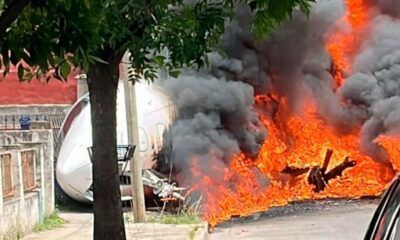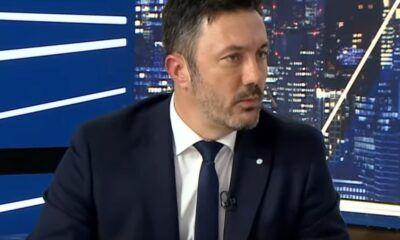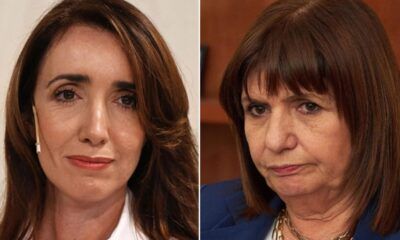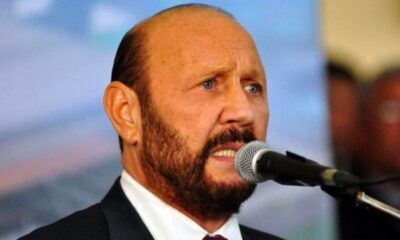INTERNACIONAL
Canada-India ties could take a long time to recover

A diplomatic row that has strained bilateral relations between India and Canada for over a year has boiled over as the countries expelled each other’s top diplomats over the killing of a Sikh activist in Canada and allegations of other crimes.
Experts say the diplomatic standoff will make it difficult for both countries to move forward with a once-promising partnership, and could impact India’s ambitions as it tries to project itself as a rising world power.
INDIA DEMANDS CANADA TO RECALL 41 DIPLOMATS AMID DIPLOMATIC TENSIONS OVER SIKH LEADER’S KILLING
«India-Canada bilateral relations, which have been on a downslide since last year, will take a further hit which will take a long time to repair,» said Praveen Donthi, senior analyst with the International Crisis Group.
Monday’s tit-for-tat expulsions came after Canada told India on Sunday that its top diplomat in the country is a person of interest in the 2023 assassination of Sikh activist Hardeep Singh Nijjar, and that police have uncovered evidence of an intensifying campaign against Canadian citizens by agents of the Indian government.
Canadian Foreign Minister, Mélanie Joly also tied five other expelled Indian officials to Nijjar’s assassination and said Canada had gathered «ample, clear and concrete evidence which identified six individuals as persons of interest in the Nijjar case.»
Canadian Prime Minister Justin Trudeau, left, walks past India’s Prime Minister Narendra Modi as they take part in a wreath-laying ceremony at Raj Ghat, Mahatma Gandhi’s cremation site, during the G20 Summit in New Delhi, Sept. 10, 2023. (Sean Kilpatrick/The Canadian Press via AP)
India foreign ministry rejected the accusations as absurd, and said it was expelling Canada’s acting high commissioner and five other diplomats in response.
New Delhi’s anxieties about Sikh separatist groups have long been a strain on its relationship with Canada, where some 2% of the population is Sikh. India has increasingly accused Justin Trudeau’s government of giving free rein to Sikh separatists from a once-strong movement to create an independent Sikh homeland known as Khalistan.
Nijjar was a local leader of the Khalistan movement, which is banned in India. India designated him a terrorist in 2020, and at the time of his death was seeking his arrest for alleged involvement in an attack on a Hindu priest in India.
Canadian police said Nijjar was shot as he was leaving the parking lot of the Sikh temple where he served as president in British Columbia on June 18, 2023. He suffered multiple gunshot wounds and died at the scene.
India’s foreign ministry in its statement Monday ascribed Canada’s allegations to the «political agenda of the Trudeau government.» The Canadian leader faces national elections next year.
Michael Kugelman of the Wilson Center, an American think tank, said India’s strong reaction is partly explained by how publicly Canada has made its accusations.
«New Delhi is extremely sensitive to any external criticism of its policies. And yet Canada isn’t only criticizing Indian policy. Its government, on the highest levels, is publicly voicing some of the most serious allegations that another government can make,» he said.
Last year, in response to similar allegations made by Trudeau, India told Canada to remove 41 of its 62 diplomats in the country.
Kugelman said the relationship is on «life support right now» and India’s concerns about the Khalistan movement in Canada «is essentially holding the relationship hostage.»
Canada is not the only country that has accused Indian officials of plotting an association on foreign soil.
Last year, U,S, prosecutors said an Indian government official directed a failed plot to assassinate another Sikh separatist leader in New York. The official was neither charged nor identified by name, but was described as a «senior field officer» with responsibilities in security management and intelligence.
New Delhi at the time expressed concern after the U.S. raised the issue and said India takes it seriously. On Monday, the U.S. State Department said in a statement that an Indian inquiry committee set up to investigate the plot would travel to Washington on Tuesday as part of its ongoing investigations.
Canada’s foreign minister on Monday noted that India is cooperating with U.S. officials but said it had refused to cooperate in the Canadian investigation.
Donthi said India’s diplomatic posturing against Canada was more aggressive because of the relatively low stakes.
«The U.S.-India relations also have a larger geopolitical framework and context, unlike India’s relations with Canada,» Donthi said, adding that India’s strong reaction was also meant to deliver a message to Prime Minister Narendra Modi’s supporters at home.
«Any public criticism is anathema to the Indian government, which is personified Modi. Such aggressive reaction is aimed at the international community and, more importantly, at Modi’s domestic constituency,» he said.
Yet, experts say the standoff could have ramifications for Modi’s global ambitions as he seeks to cast India as a rising global power and grows closer to the U.S., which like India is watching China’s growing assertiveness with concern.
CLICK HERE TO GET THE FOX NEWS APP
Donthi said the growing rift between India and Canada will also «impact the growing strategic understanding between the U.S. and Western democracies» that are wooing New Delhi as a counterweight to Beijing.
«The Canadian allegations against India come against the grain, as New Delhi has been enjoying a favorable external environment,» Donthi said. «This will throw a spanner in the works for India’s great power ambitions.»
INTERNACIONAL
Projectile from Yemen strikes near Tel Aviv, injuring more than a dozen: officials
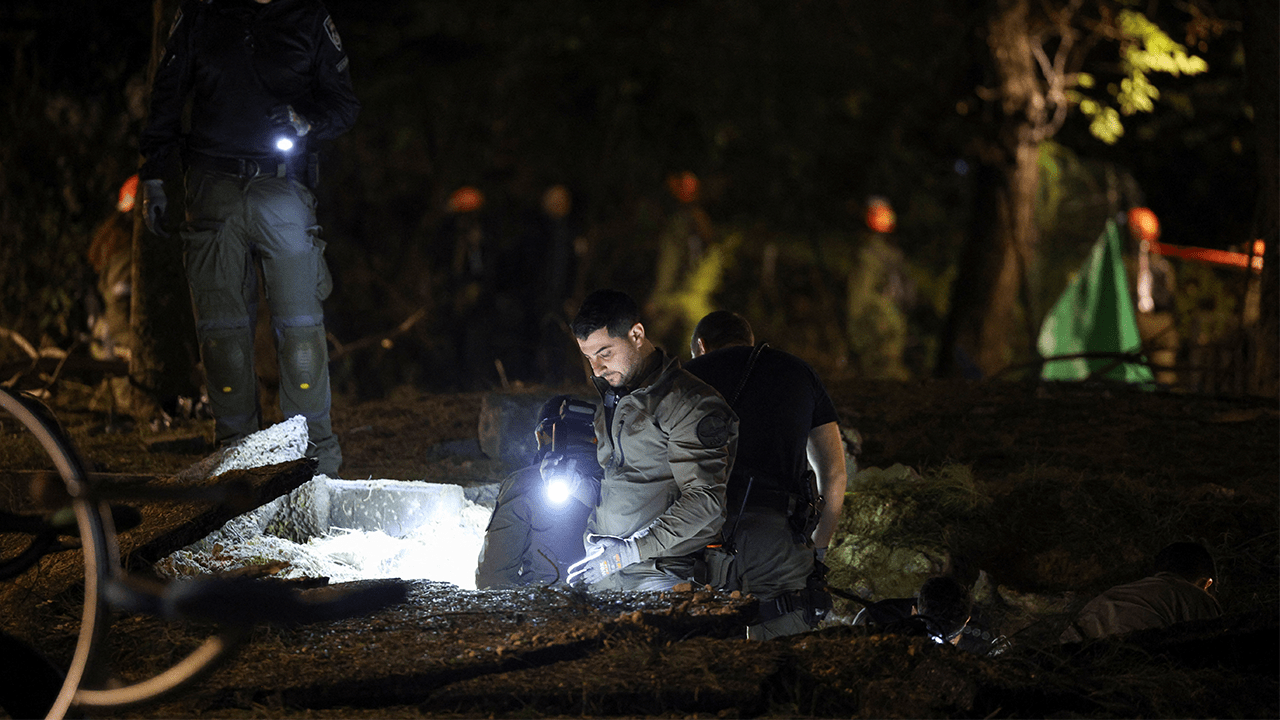
A projectile launched into Israel from Yemen overnight into Saturday struck Tel Aviv, resulting in mild injuries to 14 people, according to Israeli officials.
Israel’s military said after sirens sounded in central Israel that the projectile landed in Tel Aviv’s southern Jaffa area following failed attempts to intercept.
«Following the sirens that sounded a short while ago in central Israel, one projectile launched from Yemen was identified and unsuccessful interception attempts were made,» the military said on Telegram.
ISRAELI AIRSTRIKES TARGET YEMEN’S HOUTHI-CONTROLLED CAPITAL OF SANAA, PORT CITY OF HODEIDA
Israeli emergency services work at the scene of a missile strike that, according to Israel’s military, was launched from Yemen and landed in Jaffa, south of Tel Aviv, Israel, December 21, 2024. (Reuters)
Iranian-backed Houthi rebels have repeatedly launched missile attacks from Yemen against Israel since the war in Gaza began in October of last year, but the incident overnight represents a rare instance in which Israel failed to intercept.
Israel has retaliated by striking multiple targets in areas in Yemen controlled by the Houthis.
HAMAS’ GAZA DEATH TOLL QUESTIONED AS NEW REPORT SAYS ITS LED TO ‘WIDESPREAD INACCURACIES AND DISTORTION’
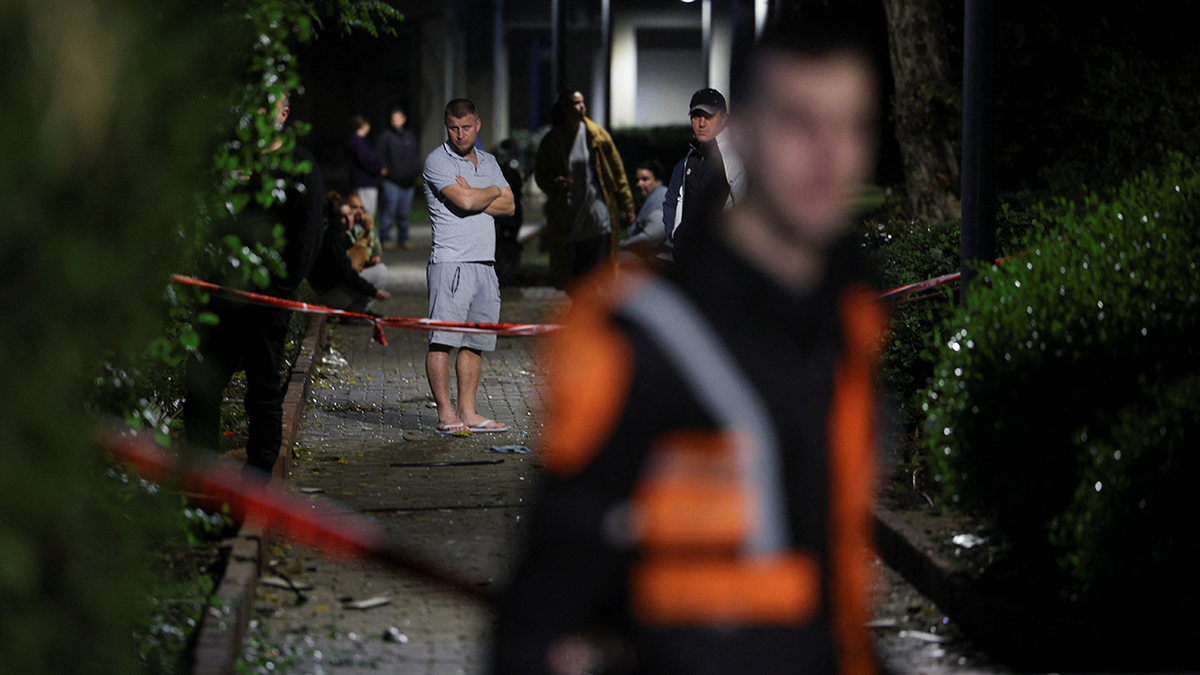
People gather at the scene of a missile strike that, according to Israel’s military, was launched from Yemen and landed in Jaffa, south of Tel Aviv, Israel, December 21, 2024. (Reuters)
CLICK HERE TO GET THE FOX NEWS APP
«A short time ago, reports were received of a weapon falling in one of the settlements within the Tel Aviv district,» Israeli police said Saturday.
On Thursday, the Israeli military said it intercepted a missile launched from Yemen, with shrapnel resulting in extensive damage to a school near Tel Aviv.
-
POLITICA3 días ago
Un avión privado que venía de Punta del Este se despistó y chocó en el aeropuerto de San Fernando: murieron los dos pilotos
-
POLITICA2 días ago
Luis Petri apuntó contra el silencio del kirchnerismo por la detención ilegal del gendarme argentino en Venezuela
-
POLITICA2 días ago
Patricia Bullrich le respondió a Victoria Villarruel tras las críticas por el gendarme detenido en Venezuela
-
POLITICA2 días ago
La Corte Suprema declaró inconstitucional la reelección indefinida en Formosa
-
POLITICA21 horas ago
El descargo de Longobardi tras su salida de Radio Rivadavia: «Me hizo acordar cuando Cristina ejecutó mi despido en Radio 10»
-
INTERNACIONAL14 horas ago
Atropello múltiple en un mercado de Navidad en Alemania: al menos dos muertos y más de 60 heridos

















